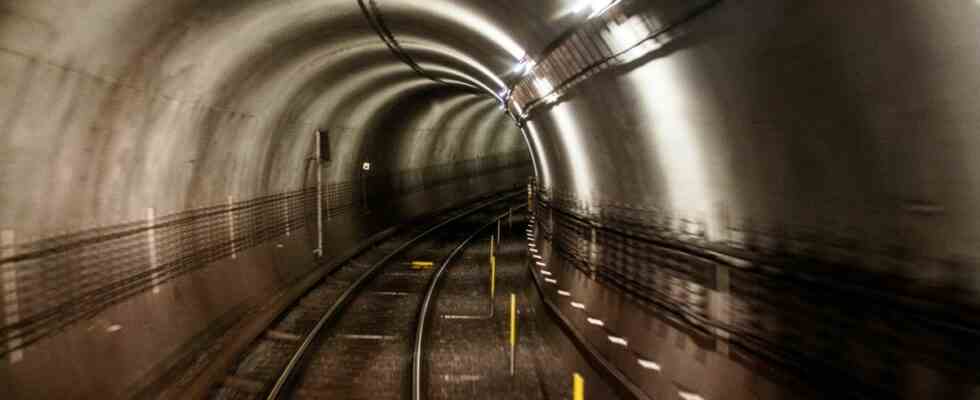Is spending millions on the planned U9 a waste of money or a sensible investment? The City Council gave a clear answer to this question. On Wednesday, a large majority decided to have the shell built for a future subway stop at the main train station. The city councilors are willing to accept the high costs of almost 563 million euros plus a further 100 million euros for the planning across factions. The left, the ÖDP and the AfD voted against it.
It was not an easy decision for the panel to make. Given the current total cost of four billion euros for the U9, it is far from certain that the city can even afford the 10.5-kilometer tube, including five new stations and station extensions. According to the forecasts of the finance department, the project, which will not be implemented until the 2030s at the earliest, could even increase in price by up to ten billion euros.
But if the shell is not built now as a support structure for a future subway station, then that will no longer be possible later. The reason: The station is being built as part of the construction of the second main S-Bahn line, including a new access building at the main station, and could no longer be integrated into the main station afterwards. In the event that the city withdraws from the project, Deutsche Bahn (DB) has already announced claims for damages of 700 million euros, since the plans have already been approved and DB believes that the construction of the main line would be further delayed. Eventually you would have to reschedule.
Not because of this threat from the railways, but in order not to literally obstruct the future of the U9, the city councilors accept the high expenditure of more than half a billion euros for the shell and continue to hope for funding from the federal government. However, the Federal Ministry of Transport has not even offered such a non-binding prospect, in contrast to the Free State, which, according to Bavaria’s Minister of Transport Christian Bernreiter (CSU), would contribute to the construction costs if the federal government also gives a subsidy.
However, the city can only submit an application for funding under the Municipal Transport Financing Act (GVFG) when there is concrete planning and a concrete cost estimate, but it is still a long way from that. Fritz Roth (FDP) pointed this out in the debate. Mayor Dieter Reiter (SPD) is also aware of this. He would at least like a signal from Federal Transport Minister Volker Wissing (FDP) that the GVFG funding guidelines will eventually be adjusted in such a way that the U9 has a chance at all of funding. According to the current rules, this does not exist because the so-called cost-benefit factor of 1, which is a prerequisite for money from the federal government, is not achieved. So far, however, there has been no such signal.
Nevertheless, as announced before the meeting, the city councilors clearly endorsed the project. Since the number of passengers has increased more than tenfold since the construction of the U3 and U6 in the past 50 years, but denser intervals are no longer possible, the U9 is needed as a bypass, explained SPD traffic expert Nikolaus Gradl. A “clear yes” was also expressed by Green Party leader Mona Fuchs and called for “clear commitments” from the federal government for funding. Veronika Mirlach (CSU) explained that the CSU had always spoken out in favor of subway construction, and now the ball is in the hands of the traffic light government in Berlin.
Brigitte Wolf (left), on the other hand, strictly rejects the U9. It would be “mad” to approve the project given the amount it will cost. “No one is going to finance this for us,” she said. Not least because of the developments on the second main route, which will be twice as expensive and whose completion is expected to be delayed by ten years, explained Tobias Ruff (ÖDP) that he had lost faith in the U9. He is basically not a subway opponent. His suggestion: “Let’s save the money and rather put it into a functioning network.”
Ruff was not able to assert himself with this, nor with the application to use the railway station, if it is built, as an underground bicycle garage instead of leaving it empty for years. The FDP also failed with an application to establish temporary cultural use there. However, the city council wants to have the Liberals’ idea of relieving the main station by shifting long-distance traffic to other stations checked in cooperation with DB.

